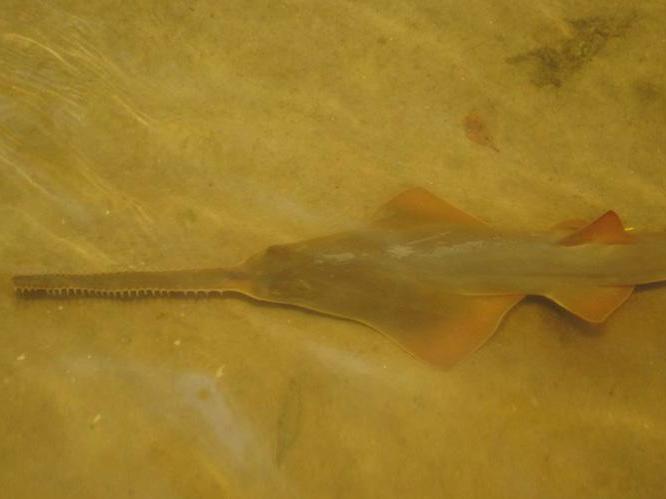Man faces prison and $50,000 fine for killing endangered sawfish
Witnesses say they saw man cutting off rostrum with power saw last year

Your support helps us to tell the story
From reproductive rights to climate change to Big Tech, The Independent is on the ground when the story is developing. Whether it's investigating the financials of Elon Musk's pro-Trump PAC or producing our latest documentary, 'The A Word', which shines a light on the American women fighting for reproductive rights, we know how important it is to parse out the facts from the messaging.
At such a critical moment in US history, we need reporters on the ground. Your donation allows us to keep sending journalists to speak to both sides of the story.
The Independent is trusted by Americans across the entire political spectrum. And unlike many other quality news outlets, we choose not to lock Americans out of our reporting and analysis with paywalls. We believe quality journalism should be available to everyone, paid for by those who can afford it.
Your support makes all the difference.A man in Florida is facing prison time and a $50,000 fine after allegedly killing an endangered smalltooth sawfish by removing the long, flat saw that is its namesake.
The man, Chad Ponce, pleaded guilty on Friday to killing the sawfish, according to the US attorney for the middle district of Florida. Prosecutors have said that Ponce was seen last year using a power saw to remove the fish’s rostrum — a beak-like projection — in the front of the sawfish.
He now faces up to a year in federal prison for the rostrum’s removal. Without it, a sawfish cannot sense or attack prey.
The United States has clocked a dramatic decrease in the number of sawfish in the ocean, with some estimates indicating there could be as many as 5,000 or as few as 500 left in the world, according to the Natural Resources Defence Council, an environmental advocacy group.
The fish has been protected under the Endangered Species Act of 2003, which is overseen by the National Oceanic and Atmospheric Administration (NOAA).
That protection makes it illegal to catch, harm, harass, or kill the fish.
Ponce’s case was investigated by NOAA and the Florida Fish and Wildlife Conservation Commission.
A sentencing date has not yet been scheduled.
Join our commenting forum
Join thought-provoking conversations, follow other Independent readers and see their replies
Comments